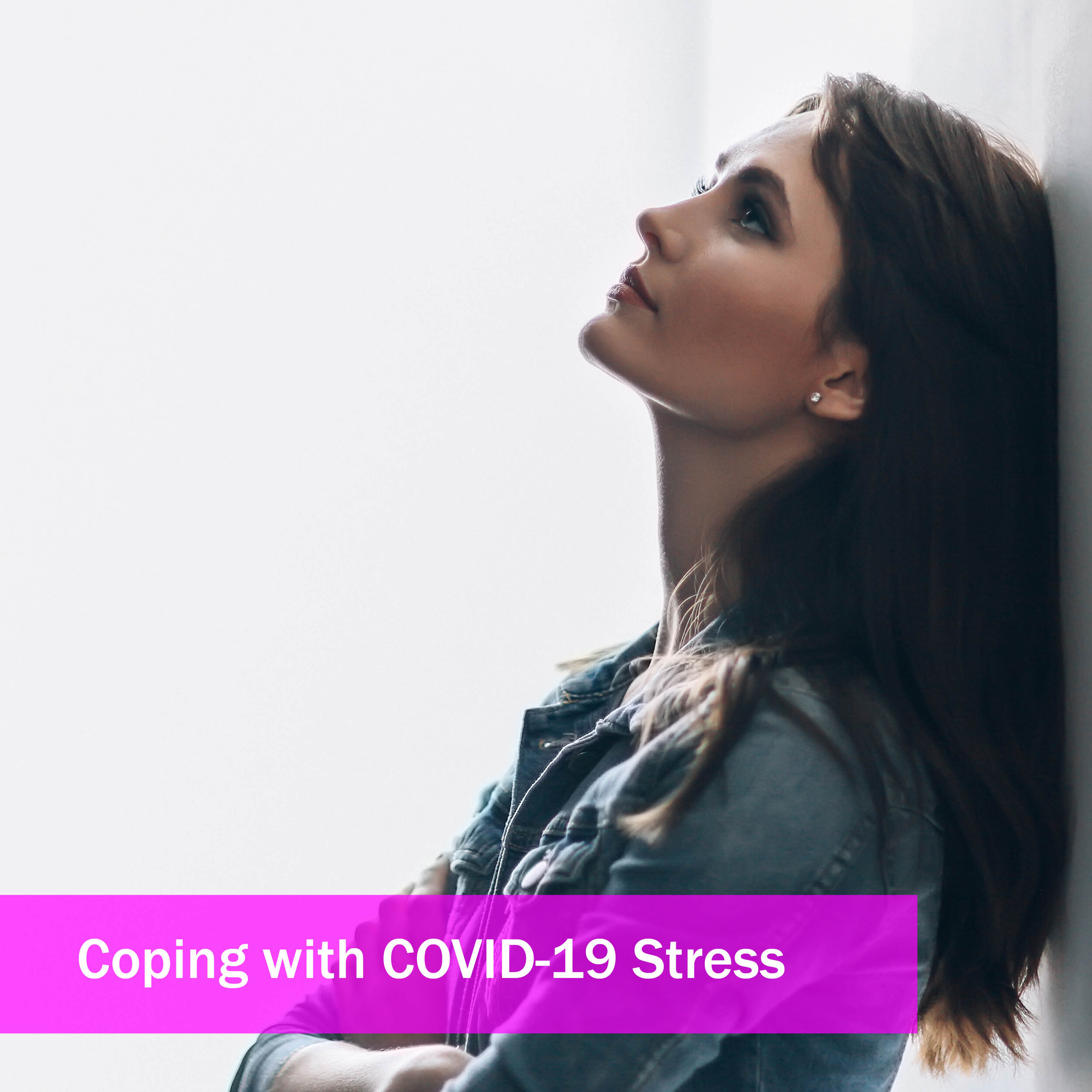Coping with COVID-19 Stress
COVID-19 CRISIS
A crisis is defined as a time of intense difficulty, trouble, or danger. How one reacts to a crisis will depend on a variety of factors, such as the person’s background or the degree to which one’s personal life is affected. Currently, we are all experiencing a global crisis, in the form of Coronavirus (COVID-19). Given that this virus has affected all of us in various ways, it is to be expected that we must all handle it in various ways.
The effects of a crisis or traumatic event can affect the emotional, physical, and cognitive wellbeing of those affected by the events. With the COVID crisis, not only are the impacts of the crisis felt on an individual level, but at societal and global levels as well. Since the gravity of the impact is resounding and long lasting, it is helpful to understand what you and others may be experiencing and feeling to help better process the situation. With this understanding, you can then enhance your coping strategies as we move through this crisis.
EXPERIENCING STRESS & ANXIETY
It is completely normal to experience stress and anxiety during this time.
Symptoms of stress and anxiety one may experience includes:
Increased feeling of fear, worry, or sadness
Feelings of hopelessness and helplessness
Changes in sleeping and/or eating
Difficulty concentrating
Difficulty focusing on daily tasks/routines
Increase in somatic symptoms (e.g., headaches, stomachaches, etc.)
Increased symptoms of ongoing health problems
Increased use of alcohol, tobacco, or other drugs
COPING
While this crisis is continuing and outcomes are still uncertain, developing and enhancing productive coping strategies can help ease some of the symptoms of stress and anxiety. By building these strategies, we can maintain a proactive (rather than reactive) environment for ourselves and loved ones. Since so many families are now operating out of a household for work, school and leisure, coping with this crisis effectively will help everyone living in the household cope more effectively as well.
STRATEGIES
There are many strategies for coping with stress and anxiety. However, the effectiveness of the strategies is individual and depend on ones’ own personal preferences, interests, and personality. It is a good idea to try a variety of strategies to find what works best for you.
One way to determine if a strategy is effective, is to check yourself: how is your heart rate, breathing, feelings in your stomach or head? If symptoms are reducing in intensity, it is an indicator that the strategy is effective for you.
Another way to determine if a strategy is effective is to keep a thought record or a journal. This can be hand-written or digital, depending on what makes you feel most comfortable. Write out your feelings and thoughts, write out what strategy you used and how it worked, dive deeper into your feelings though journaling to help process them or develop more solutions to situations that you have control over (e.g., emotional reactions, or positive interactions with family members).
Scaling symptoms is another way to see if a coping strategy is working. Assign a number to severe or intense feelings. For example, an extreme feeling of anxiety would be indicated at a level 5. Then, practice a coping strategy and see if the severity reduces. In our example, maybe after you meditate, your anxiety is reduced to a level 3. This would indicate that meditation is a good strategy for you to reduce your anxiety. Scaling the intensity of feelings can help to not feel overwhelmed by your feelings, and instead focus on small movements down the scale, from a 5 to a 4, or from a 4 to a 3. These small, progressive steps can help determine how effective the coping strategy you are using is.
Some examples for effective coping strategies include:
Write out a daily/weekly schedule
Take “me-time” or breaks to engage in leisurely activities
Limit the amount of time spent watching the news and looking at social media
Engage in healthy de-stressing activities: meditation, exercise, well-balanced meals, etc.
Talk to friends and families, continue to stay engaged with social support systems
Pick up a new hobby (knitting, painting, do a puzzle)
Again, these are suggestions are not a one-size-fits-all solutions and the strategies should be tailored to your interests and specific situation.
If feelings of stress and anxiety are increasing in intensity and causing you to not be able to engage in daily routines, it may be beneficial to seek outside support from a therapist or mental health professional. If you or a loved one is experiencing extreme distress or is having thoughts about harming themselves or another person, some resources include:
Substance Abuse and Mental Health Services Administration’s (SAMHSA’s) Disaster Distress Helpline: 1-800-985-5990 or text TalkWithUs to 66746. (TTY 1-800-846-8517)
National Suicide Hotline: 1-800-273-8255
Above all, remember that this is a temporary situation, and we will all get through it. Stress and anxiety can cast a dark shadow on everything in our lives, but developing good coping strategies can help lift that burden. Don’t hesitate to reach out to the people around you to express how you’re feeling. Creating a network of care, and participating in others’ networks of care, is the best possible way to see this crisis through.
Carrine Pilkington, Regional Clinical Director
Tuesday, March 30, 2020

